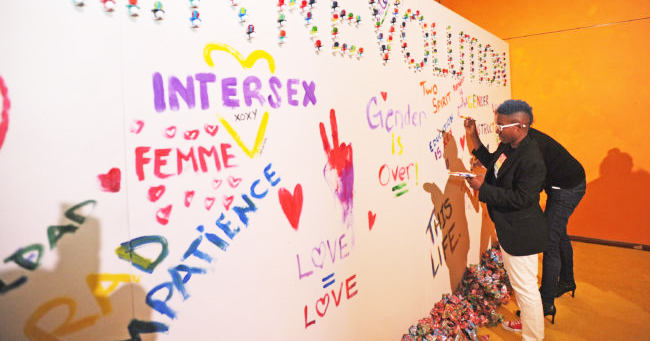First observed in 2004, the day was created to end unwanted genital surgeries on children alongside combating shame and secrecy. Earlier this year a UN committee report noted deep concern that “medically irreversible and unnecessary sex assignment surgery and other treatments are reportedly performed on intersex children” in Ireland. In 2016, the Programme for Government gave a commitment to a National Youth LGBTI+ strategy, spearheaded by Minister Katherine Zappone. Out of the 3,710 young people who took part in the survey, only one identified as intersex. This could be due to both stigma and the fact that many people with intersex variations are unaware of them.
Not much is widely circulated about the unique biologies and needs of people in the ‘I’ part of the LGBTI community, and yet it is estimated that intersex variations occur within 1.78% of the population. That’s over 5,000 people, nonetheless, rarely has it been taken on as an issue or given any significant discussion in the Irish context.
According to Tanya Ní Mhuirthile, Assistant Professor of Law in DCU, “It isn’t something that’s easy to see. It’s not something we can tell by someone when we meet them. You may have someone where that’s apparent at birth, because genitalia are somehow ambiguous, and so those cases are easier to identify. They’re not the vast majority of intersex cases. Intersex development can also take place at puberty, when the body isn’t developing the way one might expect.”
TENI are the only body in Ireland actively campaigning on behalf of Ireland’s intersex population. According to Operations Manager, Gordon Grehan of TENI, the organisation is seeking to have new, more informed recommendations for the upcoming revision of the 2014 Gender Recognition Act. Among those is “that the Minister ensure that intersex people are not discriminated against in legislation and that sex characteristics are included in non-discrimination law.” Crucially, another recommendation involves the rights of the child, stating that, “TENI urges the State to end the imposition of non-therapeutic genital normalising surgeries.”
The Fundamental Rights Agency issued a landmark document in 2015, which stated: “although they do not usually face actual health problems, due to their status, intersex people are routinely subjected to medical and surgical treatments – often while very young – to align their physical appearance with either of the binary sexes without their prior and informed consent.” In March 2017, a Committee formed by the UN against discrimination, analysed the current situation in Ireland. They noted deep concern that “medically irreversible and unnecessary sex assignment surgery and other treatments are reportedly performed on intersex children.”
As activist Kitty Anderson, co-chair of OII Europe (Organisation of Intersex International), says: “It is core that the medical treatments that are performed on us are discriminatory to us on the grounds of our sex. We do know this is still going on in Ireland. It’s going on, basically, everywhere in Europe. I know of Irish intersex people, but I know that nearly none of them are out as being so. Ireland is a small community, so coming out is much more difficult than in a larger community.”
Anderson explains the complexities around coming out: “For intersex people, you could say, there is less of an upside to coming out. You’re coming out about what your body is like, and you might be in a relationship. Your partner might know. So you are living with the gender you identify with, and there isn’t really this sort of push to come out. That’s a factor that makes it more difficult I think for a lot of intersex people to come out.”
It’s important to note that gender identity and sexual orientation are separate, as intersex has largely to do with biology and variations in sex characteristics. As Anderson reminds us: “When it comes to the core issues that the communities are facing, we need to be careful not to pretend that the issues of just one community can cover the entirety of issues faced by the LGBTI community. When it comes to trans and intersex people it’s often more to do with the medical field, than, for example, family rights.
“Now we are seeing that intersex people are not coming out publicly, but at least realising they have rights. What is needed is a top-down approach. It is the duty of authoritative bodies and legislators to lay the groundwork for tackling intersex issues. It can’t be left to activists alone.”
If you are affected by these issues you can find support at www.teni.ie
© 2018 GCN (Gay Community News). All rights reserved.
Support GCN
GCN is a free, vital resource for Ireland’s LGBTQ+ community since 1988.
GCN is a trading name of National LGBT Federation CLG, a registered charity - Charity Number: 20034580.
GCN relies on the generous support of the community and allies to sustain the crucial work that we do. Producing GCN is costly, and, in an industry which has been hugely impacted by rising costs, we need your support to help sustain and grow this vital resource.
Supporting GCN for as little as €1.99 per month will help us continue our work as Ireland’s free, independent LGBTQ+ media.

